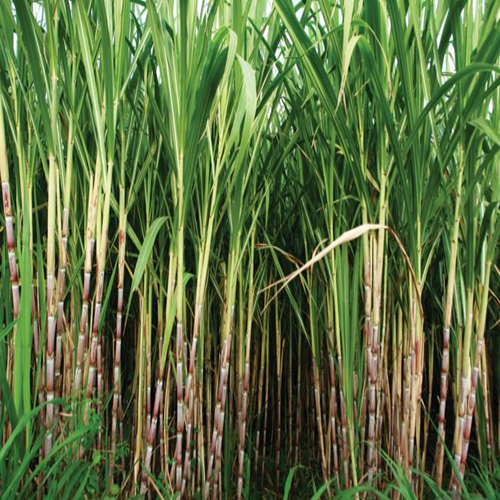Agitated sugarcane farmers go marching, launch protest at Azad Maidan

PANJIM: Frustrated with the government’s failure to fulfil its promise to restart the ethanol plant at the Sanjivani Sugar Factory, Dharbandora, sugarcane farmers on Monday intensified their agitation and marched to the Azad Maidan, Panjim where they staged their protest. Earlier, they had protested at the factory site for four days, after serving an ultimatum to the government.
The agitated farmers urged Chief Minister Pramod Sawant to provide clarity regarding the future of Sanjivani factory as regards starting of the ethanol plant, since they had already done the groundwork.
“The Chief Minister has assured us support to start the ethanol plant, but we don’t know if it will start or not. He should clearly state his stand on whether he will start the factory or not,” Sugarcane Farmers’ Association president
Rajendra Desai said.
Requesting an end to the prolonged uncertainty over the fate of the ethanol plant, the farmers emphasised the need for clear information on whether the proposed Ethanol plant will indeed materialise at Sanjivani, as promised by the Chief Minister.
“The Chief Minister should not leave us in suspense on whether the factory will start or not. We were compensated for four years, but from next year onwards we will not be compensated. Since the government wouldn’t restart the factory, the question was what next? And based on the PPP model, the government promised to start an ethanol plant but hasn’t given a green signal yet,” said another farmer.
The farmers said that their main demand is that the government start an Ethanol plant and claimed that they have shortlisted a contractor, who according to them is ready to operate the plant at the Sanjivani sugar factory and the proposal has been submitted to the government. They alleged that the government is however silent on the issue and not responding to their demand.
In the evening the protestors tried to march to the Chief Minister’s bungalow at Altinho but were stopped by the police. They were told that the Chief Minister will not be available for discussion due to ongoing international event in Panjim.
Later speaking to media persons on the sidelines of an event, Chief Minister Pramod Sawant said that the government is keen to restart the Sanjivani sugar factory and that a tender would be floated soon.
“We had invited tenders twice but there was no response,” he said.
Sawant further informed that the government has been providing compensation to these farmers for the last three years and they will receive their compensation for the remaining two years. There is no need for them to worry and they should stop staging protest to show-off.
Earlier, the Chief Minister had deputed the Deputy Collector to meet the farmers and depute five representatives on Tuesday to discuss and resolve the issue
“ANTI-FARMER GOVERNMENT”, SAY PROTESTING SUGARCANE FARMERS
PANJIM: Sugarcane farmers have heavily criticized the establishment calling it an anti-farmer Government. The farmers have warned that the reduction of the sugarcane farming will disturb dairy farming, employment of the villagers along with other allied activities in Goa.
Sugarcane farmers that are spread across 10 out of the 12 talukas of Goa have been demanding and protesting at times demanding immediate resumption of the Sanjivani sugar factory. The Sanjivani Sugar Cooperative which had over 2,500 farmers once upon a time now has reduced to only 600 farmers.
All the demands of the farmers have fallen flat for several years with no headway in revival of the sugarcane farming in the State. Protests that were being held at the factory and the protests at Azad Maidan are by farmers that have been farming for generations. However, the future seems to be bleak for the remaining 600 odd families.
One of the largest sugarcane farmers from Sanguem Harshad Prabhudesai said, “This government needs to understand that sugarcane, dairy farming, laborers from remote villages and other allied agriculture activities will be affected badly,” he said.
“Transporting sugarcane beyond 60 km is uneconomical and we will have to ultimately stop growing the crop,” he added.
Prabhudesai said all along the government decisions have been anti-farmers and anti-agriculture.
Hopeful farmers have asked the government whether they should continue growing sugarcane.
‘SHOWING-OFF’ FACTS: HOW ‘JIVAN’ LEFT SANJIVANI SUGAR FACTORY
In 1968, soon after Goas’ liberation, Sanjivani Horticulturists Cooperative Society was established aiming for promotion of sugarcane crop in Goa alongside other crops. It was in the year 1973 the Government of Goa under the leadership of the visionary Chief Minister Late Dayanand (Bhausaheb) Bandodkar set up the Sanjivani Sahakari Sakhar Karkhana (Sugar Factory) at Dharbandora in South Goa. By 1979, the area under cultivation of sugarcane had increased. The factory received 55,000 tonnes of cane in 1977-78 compared to 13,532 that was produced in the year 1973-74, which was the trial season during the commissioning of the sugarcane crushing plant. The first season immediately after the commencement of crushing cane in 1974-75 saw 31,227 tonnes of cane being harvested from the plantations of Goa.
There were 63 registered Taluka Farmers Service Cooperative Societies spread across 10 talukas of Goa. The Government of Goa Daman and Diu through its Local Administration and Welfare Department, under the Registrar of Cooperative Societies, would give loans and support for improvement and promotion of sugarcane cultivation in Goa.
Various societies working in the field of agriculture and moreover in the sugarcane front were amalgamated and reorganized into a single society.
The factory and sugarcane cultivation in Goa was at its peak in the 90’s. However, when the government said the factory was making losses it took over Sanjivani in 1996. Sanjivani Sahakari Sakhar Kharkhana (SSSK) Ltd, Goa was running the show until then with former Chief Minister Pratapsingh Rane as the Chairman. After the government took over the losses of the Sanjivani factory continued piling up.
When the government took over Sanjivani the plant had incurred losses worth Rs 8 crore. The government took over the plant in 1996 as a measure to contain the losses. After 26 years, the factory has run into losses of Rs 120 crores. Now the Sugarcane crushing plant is redundant, the land has been plundered and the farmers have quit sugarcane cultivation.
At present Sanjivani hardly has 600 farmers remaining in the sugarcane cultivation and are receding rapidly. Some farmers have taken up jaggery production locally as there is no taker for cane in Goa. A farmer informed that sending sugarcane to Karnataka is unaffordable as the entire earning is spent for transportation. According to the farmers the production won’t go beyond 12,000 tonnes this year.

















